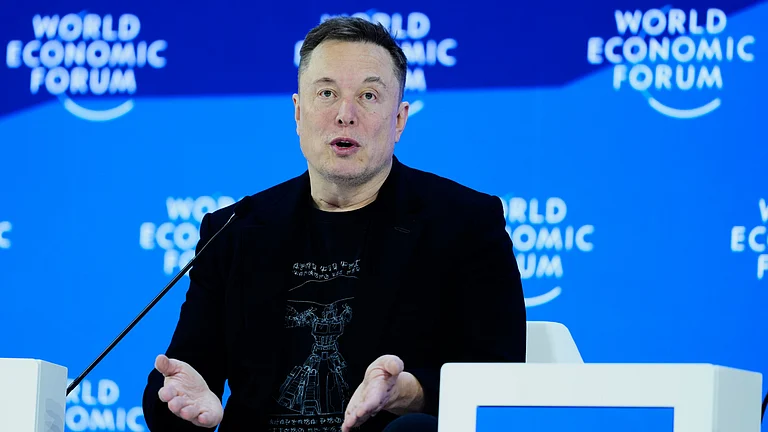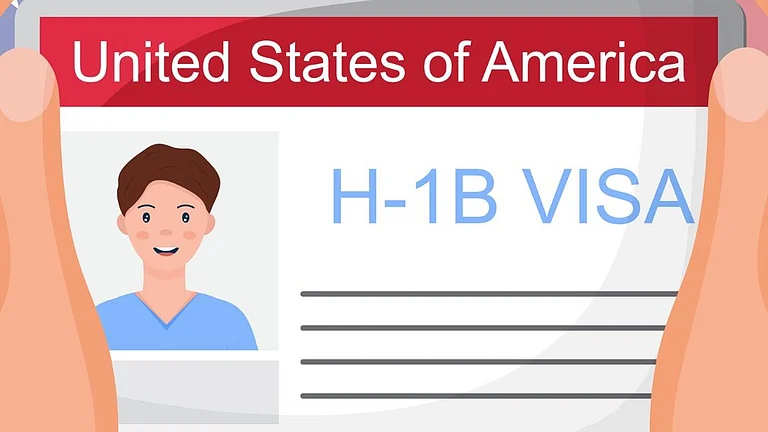
Trump slaps $100k annual fee on H-1B visas, effective 21 September.
Over 70% Indian professionals affected, with US tech giants warning staff.
Canada and Europe ready to attract talent as America tightens immigration.
Experts warn US risks innovation loss, while India eyes global capability centres.
US President Donald Trump on Friday signed an executive order adding $100,000 annual fee for applicants to the H-1B visa programme for skilled foreign workers. The order is scheduled to take effect on 21 September.
This is a huge jump from the current few thousand dollars, that companies pay per visa, and part of the administration’s broader crackdown on legal immigration.
Trump issued the proclamation ‘Restriction on entry of certain non-immigrant workers', saying the abuse of the H-1B visa programme is a "national security threat".
Trump officials defended the hike as a way to ensure only the “very highly skilled” come to the US and to protect American jobs from cheaper foreign labour. Commerce Secretary Howard Lutnick even suggested that fewer H-1Bs will be used going forward because at $100k per worker, “it’s just not economic anymore”.
However, critics see this as a de facto barrier that could shut out talent and sidestep Congress, with legal challenges likely.
H-1B Program
Ajay Bhutoria, a former advisor to President Joe Biden and Asian-American community leader on immigration policy, noted that the H-1B programme, a lifeline for innovation that has attracted top talent from around the world, met unprecedented barriers with this massive jump from the current $2000-$5000 total fee, which would crush small businesses and startups reliant on diverse talent.
H-1B is for an individual in occupations that require the theoretical and practical application of a body of highly specialised knowledge and a bachelor’s degree or higher in the specific speciality, or its equivalent.
American companies, especially in tech, have long used H-1Bs to fill skill gaps. These visas are typically valid for three years (renewable up to six) and had a cap of 85,000 new visas annually (65k general + 20k advanced degree) – heavily oversubscribed via lottery. Notably, over 70% of H-1B beneficiaries are Indian nationals, making Indian professionals the most affected group. In 2024, Indians comprised about 71% of all H-1B recipients, far ahead of China’s 12% share.
This new fee, effective September 21, strikes directly at that pipeline of Indian tech talent to the US. The immediate reaction was telling as firms like Microsoft, JPMorgan and Amazon urgently warned their H-1B staff not to leave the US and advised those abroad to fly back before the fee kicked in. Government statistics show that the greatest beneficiary of the programme in the previous fiscal year was Amazon, followed by tech giants Tata, Microsoft, Meta, Apple and Google.
Impact on Indian Talent and Mobility
Indian professionals are at the epicentre of this change. Each year, tens of thousands of Indian engineers and IT experts land in America on H-1Bs; many build careers and eventually settle there. Now, the fee creates a major obstacle for both individuals and the firms hiring them. Crucially, US rules dictate that employers must pay visa fees, not the workers. But at $100k per year, even deep-pocketed tech giants would think twice, and most smaller companies simply will not be able to sponsor foreign talent. This has also lowered the expectation of many Indians getting job offers in the US, as fresh applications plummet in the face of this fee.
The movement of people will certainly slow. In the short term, H-1B holders already in America have been told to stay put to avoid visa complications. Those stuck in India when the fee took effect may remain stranded, unless their employer is willing to cough up the hefty sum. For Indian STEM graduates who once saw the US as the land of opportunity, the equation likely to get changed. “It’s a reckless attempt to cut America off from high-skilled workers,” said US Congressman Raja Krishnamoorthi, noting that many H-1B holders had fueled innovation and even founded job-creating companies in America.
Global Alternatives and Deal Flow
Other countries are already positioning to benefit from the US’s tighter stance. “While other nations race to attract global talent, [such barriers] weaken our economy,” Krishnamoorthi warned. Indeed, Canada, Europe, and others stand ready to welcome skilled tech workers who might feel unwelcome in the US. “The move will drive away skilled professionals... pushing talent to competing destinations such as Canada or Europe,” Bhutoria observed.
Canada, in particular, has streamlined work permits for techies and even launched special visas. It has introduced a new public policy (Tech Talent Strategy) allowing US H-1B visa holders to apply for an open work permit valid for up to three years. Their spouse/dependents could also get work or study permits. The program was capped at 10,000 applications, and it was quickly filled, underscoring demand.
Likewise, Europe and Australia have their own talent visas. This means the deal flow of talent may be redirected.
A Shift in Economic Strategy
For India, this policy change presents a mixed picture. In the immediate term, thousands of Indian professionals in the US face uncertainty, and aspirants see a door narrowing. But Indian business leaders also spy a silver lining. Higher barriers to US entry “may encourage more global capability centres to be set up in India,” an official from Indian tech industry body NASSCOM told Moneycontrol.
In economic terms, this policy could prove a self-goal for the US. American firms may face talent shortages or higher wage bills, and some innovation will simply bloom elsewhere. “There will be an immediate fallout… companies will have to adapt,” the official noted, predicting US tech firms will bear the brunt of losing access to affordable skilled workers
Former NITI Aayog CEO Amitabh Kant also wrote on X that by slamming the door on global talent, America pushed the next wave of labs, patents, innovation and startups to Bangalore and Hyderabad, Pune and Gurgaon.
"India’s finest Doctors, engineers, scientists, innovators have an opportunity to contribute to India’s growth & progress towards #ViksitBharat. America’s loss will be India’s gain," Kant added.
[With inputs from PTI]


































